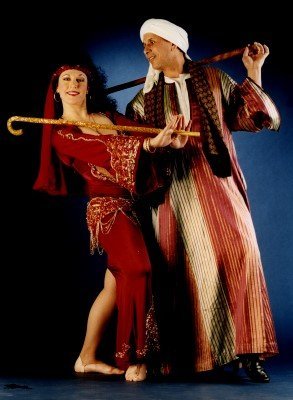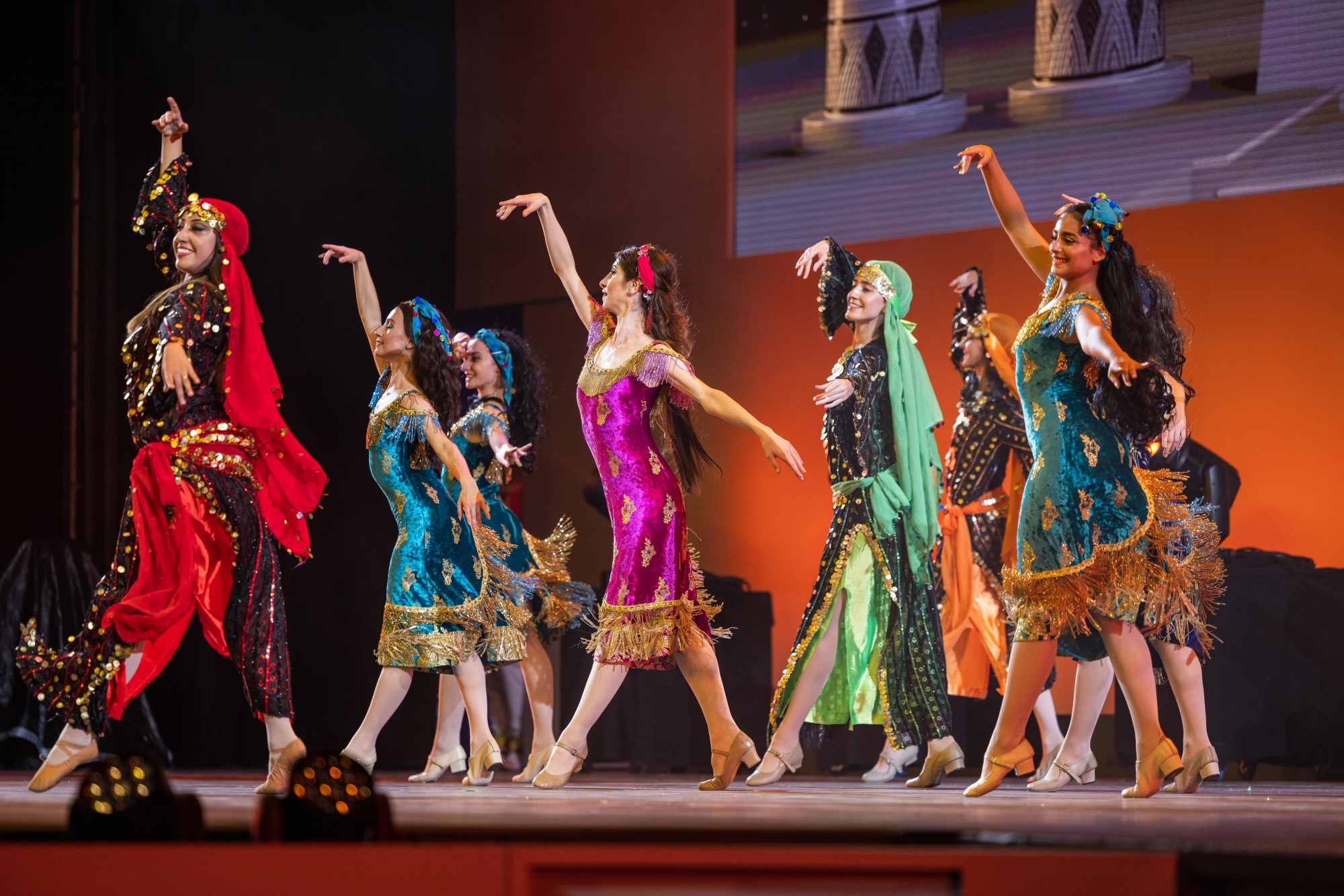
Egyptian folklore dance is a vibrant and colorful form of dance that has been passed down through generations of Egyptians. It is a celebration of the country’s rich cultural heritage and is performed at weddings, festivals, and other cultural events throughout Egypt.
There are many different styles of Egyptian folklore dance, each with its own unique rhythms, movements, and costumes. Some of the most popular styles include:
Saidi dance – a lively dance from Upper Egypt, characterized by the use of sticks, tambourines, and other percussion instruments.
Nubian dance – a dance from southern Egypt and northern Sudan, which combines acrobatic movements with energetic drumming.
Ghawazee dance – a dance performed by a group of women who wear brightly colored skirts and move their hips in a circular motion to the beat of the music.
Baladi dance – a style of dance that originated in Cairo and is characterized by flowing, undulating movements of the hips and arms.
Tanoura dance – a Sufi-inspired dance in which the performer wears a colorful skirt and spins in a circular motion, representing the rotation of the universe.
Egyptian folklore dance is an important part of the country’s cultural heritage, and it continues to evolve and adapt to modern times while still maintaining its traditional roots. Whether performed by professionals or amateurs, Egyptian folklore dance is a powerful and expressive form of art that reflects the beauty and diversity of Egypt’s people and traditions.
Egyptian Folklore as a life style
Egyptian folklore dance has been passed down through generations, with many families and communities maintaining their own unique styles and variations. Those who perform and practice Egyptian folklore dance often have a deep appreciation for the country’s history and cultural traditions.
In addition to dance, Egyptian folklore is also expressed through art, music, cuisine, and traditional dress. Folklore culture emphasizes community, family, and tradition, and many Egyptians hold a deep sense of pride and identity in their country’s cultural heritage.
For those who perform Egyptian folklore dance professionally, it can be a full-time career, with opportunities to perform at cultural events, festivals, and other celebrations throughout the country and even internationally. However, for many others, folklore dance is a hobby or a way to connect with their heritage and community.
In general, the lifestyle associated with Egyptian folklore culture is characterized by a strong sense of family and community, a deep respect for tradition, and a love for music, dance, and art. It is a culture that values hospitality, generosity, and kindness, and many Egyptians take great pride in sharing their customs and traditions with visitors from around the world.
Things you didn’t know about Egyptian Folklore
Egyptian folklore is a vibrant and diverse collection of traditional stories, music, dance, and customs that have been passed down through generations of Egyptians. It reflects the country’s rich history, cultural heritage, and deep sense of community and identity.
Egyptian folklore includes a wide range of stories and legends, often featuring mythical creatures such as the sphinx, the phoenix, and the djinn. These stories are often told through traditional oral storytelling, music, and dance performances.
Music and dance play a significant role in Egyptian folklore, with many different styles and variations existing throughout the country. The dance is often accompanied by traditional instruments, such as the oud, ney, and qanun. Egyptian folklore dance is characterized by flowing, undulating movements of the hips and arms, and often features intricate footwork and rhythmic clapping.
Egyptian folklore also includes a variety of customs and traditions, such as the celebration of religious holidays, the preparation of traditional cuisine, and the wearing of traditional clothing. Many Egyptians take great pride in their cultural heritage and are eager to share their customs and traditions with others.
Overall, Egyptian folklore is a beautiful and unique expression of the country’s rich cultural identity, and it continues to thrive and evolve to this day.




